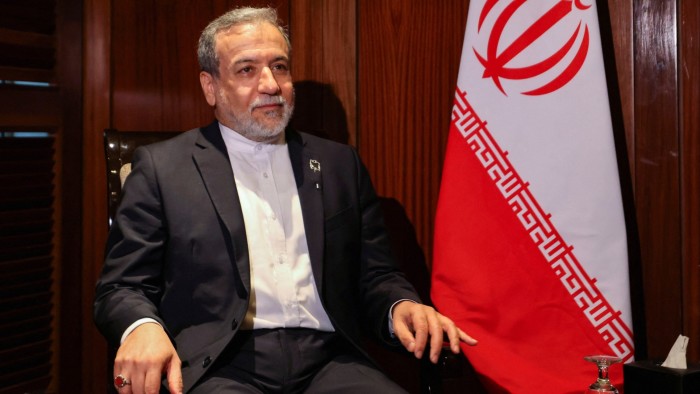Unlock the White House Watch newsletter for free
Your guide to what Trump’s second term means for Washington, business and the world
France, Germany and the UK have told the UN they are prepared to trigger the reimposition of sanctions on Iran unless it resumes negotiations with the international community over its nuclear programme.
The foreign ministers of the three countries — known collectively as the E3 — wrote to the UN on Tuesday to raise the spectre of “snapback” sanctions unless Iran takes action. They said they had offered Iran an extension to avoid the automatic reimposition of sanctions later this month.
“We have made it clear that if Iran is not willing to reach a diplomatic solution before the end of August 2025, or does not seize the opportunity of an extension, E3 are prepared to trigger the snapback mechanism,” the ministers said in the letter, which was obtained by the Financial Times.
The letter to UN secretary-general António Guterres and the UN Security Council was signed by French foreign minister Jean-Noël Barrot, German foreign minister Johann Wadephul, and UK foreign minister David Lammy. It comes two months after the US and Israel struck nuclear sites in Iran.
The Iranian mission to the UN did not immediately respond to a request for comment about the letter.
During Donald Trump’s first term, the US president in 2018 withdrew from the Iran nuclear deal that his predecessor Barack Obama had concluded with Tehran and several world powers. The deal, which still stands, had put significant limits on the country’s nuclear programme in exchange for sanctions relief.
The UN sanctions are set to expire on October 18 unless one of the remaining parties — the UK, Germany, France, Russia and China — triggers the “snapback” mechanism.
The E3 told Iran at talks in Turkey last month that they could extend the end of August snapback deadline if Tehran agreed to resume talks with the US and co-operation with the International Atomic Energy Agency before September.
One western diplomat said the talks had been “difficult”. On Tuesday, the E3 said their offer of an extension “remained unanswered by Iran”.
The ministers said a “limited extension” would provide more time for talks aimed at concluding a new nuclear agreement, while maintaining the ability to reimpose sanctions to prevent nuclear proliferation.
Following the Istanbul meeting in July, Iran’s foreign minister Abbas Araghchi told the FT that the E3 had no “legal or moral grounds” to trigger the snapback. He warned that Iran would exclude the European powers from future nuclear talks if they went through with the process.
Araghchi accused the E3 of failing to meet their deal commitments and said the snapback mechanism was “not that important anymore”.
“With the Europeans, there is no reason right now to negotiate because they cannot lift sanctions, they cannot do anything,” Araghchi said. “If they do snapback, that means that this is the end of the road for them.”
In their letter, the E3 ministers said they were “clearly and unambiguously” legally justified in reimposing sanctions on Iran because since 2019 Tehran had “wilfully” departed from its commitments under the deal.
Recommended
Tehran has said it remains open to talks with the Trump administration. But its stance hardened after Israel’s assault and 48 hours before Tehran was to hold a sixth round of indirect negotiations with the US.
Araghchi has said Iran wants assurances from the US that it would not be attacked during future talks, and wants “confidence building measures”, including the US agreeing to compensate Iran for war damages.
Iran announced in June that it was suspending co-operation with the IAEA, which has had inspectors in the country, following the Islamic republic’s 12-day war with Isreal. A senior IAEA official met with Iranian officials in Tehran on Monday, but the UN nuclear watchdog has not commented on the trip.

